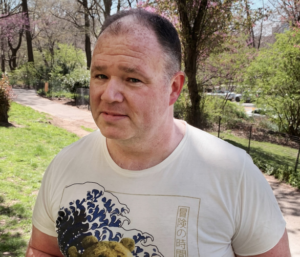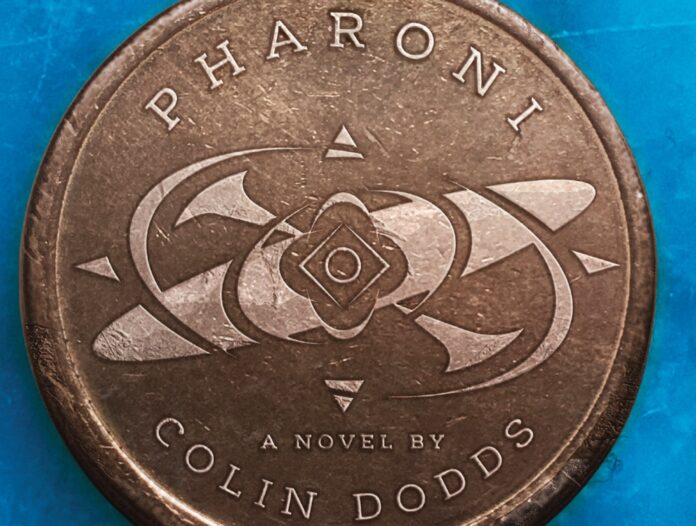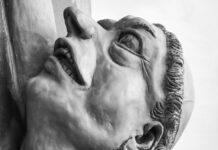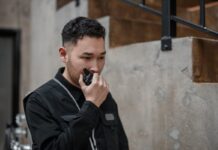(Below is an excerpt from the novel Pharoni by Colin Dodds)
*
Accusations of Rocket Sabotage
In which we learn about the mysterious activities and secret crusade of Maud Hufgler.
DOWNTOWN MANHATTAN
I was home from Florida for a day or two when I got the call from the federal building. The bail was high, but it was Maud. I took a car downtown and got her out. The charges were obscure, and she wouldn’t say much when I picked her up.
From the jail, we took a short car ride back to the place she shared with Roy, an opulent tower by Wall Street, where the doorman always hassled Andrew for his ID. She apologized for calling. Roy was out of town, giving a talk in Antwerp. Andrew’s daughter had a fever, and he didn’t have the leeway on his credit card to cover the bond.
She relieved the nanny, a squat Ecuadorian woman who seemed genuinely fond of Maud, with a hug and a reminder of how to enter overtime on their household payroll system. Maud checked on her sleeping boy and then gestured me to a room—one of I couldn’t guess how many in the stratospheric penthouse—which was clearly hers alone. WPA-era posters and corkboard festooned with documents and scrap paper crowded the walls.
Maud turned on a few of the lamps that dotted the desks, tables, and file cabinets that lined the walls, then dialed an oversized desk phone and turned on the speaker. The person who answered her call asked if she was out. Maud said yes, and that she just wanted a lawyer on the line while she explained some things to an old friend. Friend of us? the lawyer asked. She said close enough. He said he’d mute his line while he got some things done. Maud cleared off a nearby sofa and explained.
Insurance was what she always told us she did for a living. And that was true to a point. But the profession was a camouflage concealing a vocation she’d inherited from her father. He inherited it from his father. It was a mild conspiracy, she said, in an ancient war.
What did that have to do with being arrested? I asked. There were a lot of companies launching rockets or putting satellites into orbit. And one of the biggest was cutting corners, getting a little too rich, running a little too lean. It was risky and inhumane, she said. And a bad-enough accident gooses pay and improves conditions for the people on the ground floor. The right accident creates new regulations and new jobs, inspection and compliance, checkers, double-checkers, and so on. It also slows things down for the ground-floor workers. But accidents are hard to get right, she said, and a few people died.
So, you killed people? I asked. That’s when Maud got a gleam in her eye. To me, she was Andrew’s younger sister, but there was more going on than she let on. Even back in the early days when we were wild and full of bluster after closing time, she was always in control, always had something in reserve. I started to get the sense that this was what it had been all along. For thousands of years in China, she said, dynasties rose and fell and rose and fell. While often corrupt, the bureaucracy held things together and sustained the civilization, more or less. Dead-end jobs, pointless jobs, quiet jobs, bullshit jobs—our motto is “Soft bread softens the vipers’ teeth.” We’re agnostic.
I asked how Roy felt about this, and she just shook her head, said she didn’t bother him with her work. For the first time, Maud made sense to me. I smiled and told her that I’d seen her in the homeless camp, negotiating between the Hobo Queen and the CEO of Ulterior Bank & Trust. She laughed and said she couldn’t imagine me going into a place like that. I said I was following Harry and asked if we could let the lawyer off the line. He said his Venmo address over the phone and said to send him a few bucks, and I’d also be covered under confidentiality. When I protested, he said, you can’t have too many lawyers.
My primitive cell phone couldn’t Venmo, so Maud sent the money. Then I gave her a five, and she poured a few drinks and ordered some food. Chinese okay? I nodded, and Maud handed me a whiskey and raised a toast.
I asked about the charges—if she was worried, and she just shook her head and steered things back to me, as she tended to do. She wanted to know what I was doing with Harry down in the Hobo Queen’s domain. I told her about the new book, how it would tell the story of the ragged and stubborn way Harry had lived, and about Harry’s ragged and stubborn friends. The story was one in which I could possibly pass as the hero, carrying the holy truth of our resurrected friend into battle with his popularizers. I had no idea until I started to tell it.
The doorman rang, and the delivery man arrived at the elevator door with steaming plastic bags. Maud set it out on the coffee table before us. The spareribs looked like lacquered wood. Eating off paper plates, I told her the bind I was in, explained the board votes, and the manuscript ghostwritten with my name on it. I told her about the digital living hell I’d been avoiding with mixed results. She wasn’t so convinced about that part.
By that point in the evening, I was fading. I’d missed my last set of Dr. Shteele pills for the day. And the last few weeks—the secrecy and the finagling over nothing—had worn me out. Mustard and grease smeared my stubble and thinning hair as I tried to express the frustration.
And Genaveve? Maud asked, steering the conversation to her chosen nemesis.
THOMAS PHARONI
She’d be against the new book if she knew about it. I’ve been playing the beaten, loving hubby just to get the thing written
MAUD HUFGLER
And you’re still going to put it out—the new gospel?
THOMAS PHARONI
I’m trying to if I can find a way
MAUD HUFGLER
And what about you and Genaveve?
THOMAS PHARONI
Why do you ask?
MAUD HUFGLER
Why do you ask why I’m asking?
THOMAS PHARONI
Well, why do you ask?
MAUD HUFGLER
What do you know?
THOMAS PHARONI
Nothing, exactly
MAUD HUFGLER
Inexactly, then. What do you know?
THOMAS PHARONI
I don’t want to say it
MAUD HUFGLER
Me neither. Let’s not say it. Let’s not give them that
THOMAS PHARONI
Okay, let’s not
MAUD HUFGLER
You have some idea of everything I’ve forgiven when it comes to Roy. And fine, that’s love or whatever. It’s necessarily a messy business. But this, I don’t forgive. Not with her. No offense—I can’t forgive that
THOMAS PHARONI
So?
MAUD HUFGLER
So I’ll make sure your book gets published. If it pains her and Roy, I’ll see to it that it goes out as wide and large as possible
THOMAS PHARONI
Are you sure? It sounds like you have your own problems
MAUD HUFGLER
Tonight I do. Next week, we’ll win
THOMAS PHARONI
You sound so sure
MAUD HUFGLER
I’m not alone. And the people who want to pursue this will find out they don’t have the stomach
THOMAS PHARONI
The police?
MAUD HUFGLER
No. The owners. So many bad things can happen to people with that much to lose. There are DUIs, revealed browser histories, tax-shelter info dumps. Summer houses catch fire, children at boarding schools become addicted to terrible things, homeless people camp out in the doorways of city pieds-a-terre
Her eyes were bright, something more alive than I could muster.
While we boys were messing around with the inevitable heartbreak and disappointment of art and literature, Maud had been learning the levers of coercion and compromise that ran the real world. Out of respect for her mission, she never said a word about it until that night. And now she was on my side, or, more accurately, I was on hers.
She could see my exhaustion in the slow relaxation of the flesh on my face—for some reason, Dr. Shteele’s radical pharmaceutical weight-loss regime failed to eliminate the fat above my neck. She rose and got me a blanket for the couch. She stayed with me, sipping wine in an armchair, while I drifted off, mumbling questions and receiving answers. I don’t think people asked Maud about herself often.
In her warm apartment and on her wildly comfortable sofa, I fell asleep. As I did, Maud told me the story of the day that her father showed her the real family business. I could see it like a movie. Maud was twelve or thirteen but already a serious kid. Her dad’s boss was an older man, tightly wound and sad, like those pictures of Oppenheimer after the bomb. He was kind, but he made everyone near him visibly uneasy. Let’s let the kid take a look, the boss said. What good will that do? her father asked. Who knows? But we have to do it. You said the other one was a dreamer, the older man said. Her dad’s office was in an insurance tower in Hartford, during the days when the city center went to seed while the suburbs around it bloomed.
What is it, Dad? What is it you had me here to see? was her question.
The tower’s floor plate was full of desks—boxy personal computers with their beige plastic slowly turning yellow—wasn’t much to look at. The boss had a big office, with downtown out one window and the floor full of quiet workers out the opposite window. And the boss pointed to the city and then to the floor of workers and said to Maud, Look. No war and no hunger. Not too much hunger, anyway. This is the dream of a thousand suffering generations. This is the conspiracy—approximate happiness. Unlike other adults, the older man didn’t talk down to her or ask if she understood what he meant. He wasn’t saying what he said to a kid. He was saying it to the person she’d grow up to be, the adult who now did his job.
And that afternoon before the century turned, the slightly sad minor executive explained a few things with the aplomb of someone who’d survived a world war and a few decades in the shadow of nuclear annihilation. What stuck with Maud wasn’t any one phrase but the broad view—that what she saw before her in northern Connecticut was probably the best anyone could do with a few billion homicidal neurotics, traumatized by history and orphaned by both the animals and the divine. The answer, he’d told her, was this: You had to give them something—really anything—to do.
That night, she said, her father had a few more Budweisers than usual with dinner. And he spoke to her that night when they were alone. “How bright the blood bumps beneath a blister. How sure beneath a scab. Deadness isn’t death. It may be the one landmark that you’re in the living place,” he said, the TV surrounding but not reaching them. Her dad was Irish-American, with a New York accent when he wasn’t trying to flatten that out for company. But that night, she remembered him saying that part with a brogue.
I fell asleep.
Read here: The Making of Pharoni
For buying the book: Smaller bookstores – bit.ly/3Og9nZ1
Amazon- amzn.to/3b6A97U
About the Author

Colin Dodds is a writer with several books to his name, including Ms. Never and Windfall. He grew up in Massachusetts and lived in California briefly, before finishing his education in New York City. Since then, he’s made his living as a journalist, editor, copywriter and video producer. His work has appeared in Gothamist, The Washington Post and more than three hundred other publications, and been praised by luminaries such as David Berman and Norman Mailer. Colin’s poetry collection Spokes of an Uneven Wheel was published by Main Street Rag Publishing Company in 2018. His short films have been selected by festivals around the world and he once built a twelve-foot-high pyramid out of PVC pipe, plywood and zip ties. Forget This Good Thing I Just Said, a first-of-its-kind literary and philosophical experience (the book form of which was named a finalist for the Big Other Book Prize for Nonfiction) is now available as an app for the iPhone. He lives in New York City, with his wife and children.
















